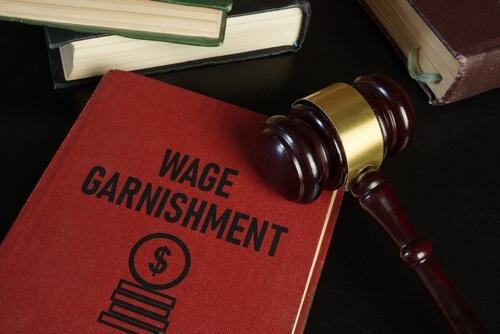630-462-9500
After Hour New Client Telephone Number 630-690-6077
1776 S. Naperville Road, Building B, Suite 202,
Wheaton, IL 60189
When and How is Wage Garnishment Used to Collect Child Support?
 In the state of Illinois, matters related to child support are taken very seriously. Since child support directly affects the children of parents who have gone through a divorce, the courts in Illinois are often prepared to place a financial burden on non-custodial parents who have been ordered to pay child support but have failed to do so. In addition, while non-custodial parents may be held in contempt of court for refusing or failing to pay child support, cases involving failure to pay child support are often taken care of before contempt charges are filed.
In the state of Illinois, matters related to child support are taken very seriously. Since child support directly affects the children of parents who have gone through a divorce, the courts in Illinois are often prepared to place a financial burden on non-custodial parents who have been ordered to pay child support but have failed to do so. In addition, while non-custodial parents may be held in contempt of court for refusing or failing to pay child support, cases involving failure to pay child support are often taken care of before contempt charges are filed.
To help ensure child support payments are made, the wages of the non-custodial parent may be garnished. In cases involving wage garnishment, the employer of the non-custodial parent will be responsible for deducting a specified amount. In this blog, we will look at how exactly wage garnishment for child support works and what happens in cases where employers do not pay. If you are involved in a situation where your ex-spouse fails to make child support payments, contact a knowledgeable attorney familiar with wage garnishment when collecting child support payments.
So, How Does Wage Garnishment for Child Support Work?
In cases where a parent has not received court-ordered child support payments, that parent can petition the court to garnish the non-custodial parent's earnings. The amount of money garnished from the non-custodial parent may involve ongoing payments and any back payments and interest owed. If the court approves the petition to garnish the non-custodial parents' wages, as much as 50 percent of their wages may be deducted. In cases where a non-custodial parent does not have other support obligations, such as spousal support from another relationship, as much as 60 percent of their wages may be garnished. If a non-custodial parent is more than 12 weeks behind on their child support payments, an additional five percent may be garnished from their wages.
In cases of a wage garnishment, the employer of the non-custodial parent is responsible for subtracting a certain amount from that employee's disposable income. Disposable income is left after taxes, and mandatory payments are subtracted from the gross income. The garnished amount will then be sent to the Illinois State Disbursement Unit and will then be transferred to the custodial parent.
What Happens When Employers Do Not Pay?
Garnishing wages from non-custodial payments is often a highly effective way to ensure child support payments are appropriately made. Sometimes, however, an employer fails to garnish the wages that have been ordered. In these cases, an employer may be fined up to $100 per day in late fees. Throughout this time, the original amount will remain owed. Moreover, the fines will accumulate until the full amount is paid.
Contact a DuPage County Child Support Attorney
If you are dealing with a non-custodial parent failing to pay child support, do not hesitate to contact the experienced DuPage County child support lawyers with The Stogsdill Law Firm, P.C.. Call 630-462-9500 for a private consultation.
Sources:
https://www2.illinois.gov/osad/Publications/DigestbyChapter/CH%2012%20Contempt%20of%20Court.pdf
http://www.ilga.gov/legislation/ilcs/ilcs3.asp?ActID=2093&ChapterID=59




















